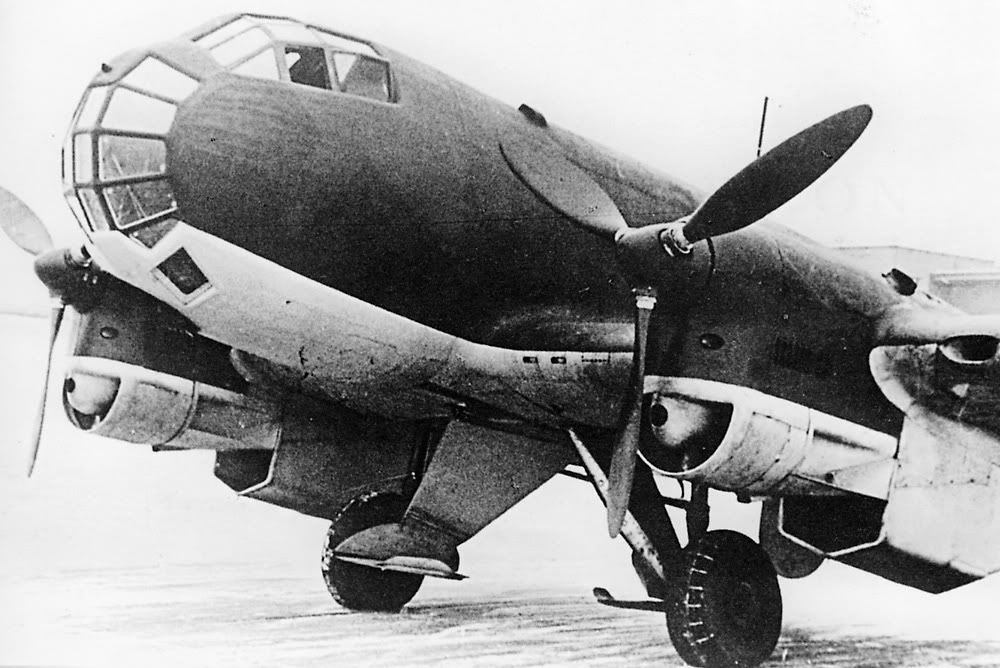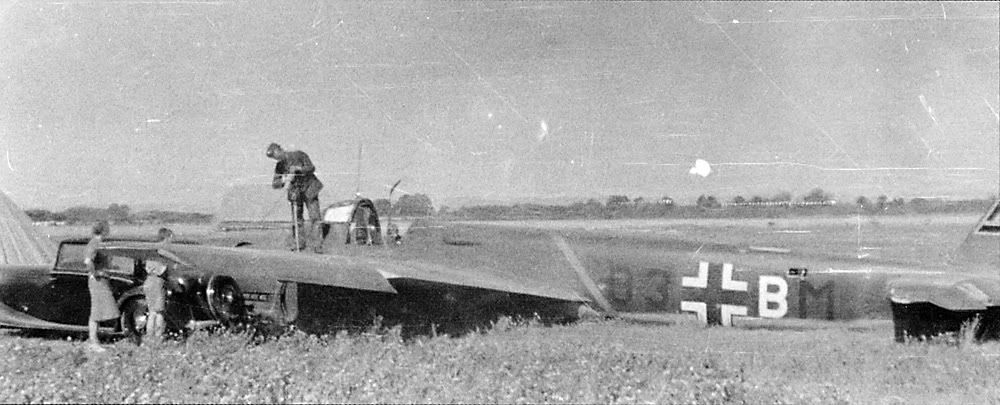Part 64.
December, 1940
RAID ON TARGET NEAR VENICE
BY A FLIGHT LIEUTENANT
The speaker is a twenty-three-year-old Flight Lieutenant in a heavy bomber squadron. He describes a recent flight from England to Italy to bomb a military target at Porto Marghera on the Italian mainland near Venice.
THAT was the longest trip I had ever done. One knew it was going to be a pretty tiring business�ten hours or so there and back�on the other hand one was very pleased to be given the opportunity of doing something that was really new.
Once before the squadron had been briefed for Italy and we'd been disappointed by having the operation cancelled because of bad weather. This time everything looked absolutely perfect from the word 'go'.
It was just after six o'clock in the evening when we got off. The navigator pin-pointed himself on the coast, then we made a slight alteration of course and got our next pin-point on the other side, crossing the North Sea in comparative darkness because the moon hadn't risen yet.
I decided we were a little too low to cross the coast safely in case we hit a heavily-defended area, so we turned left along it to gain an extra fifteen hundred feet. While we were gaining height in that way a fighter passed very close to our tail, but he evidently didn't see us. At any rate, he didn't attack. The rear-gunner, of course, wanted to have a crack at him�all air gunners always do�but it had come and gone too quickly for him to get his sights on it.
We were taking as direct a route as possible to avoid passing over neutral territory. Seventy miles inland and ground became snow-covered. It was a fairly cold night�minus twenty degrees at twelve thousand and, later, at fifteen thousand, minus twenty-five.
We were climbing gradually all the time, until we'd reached a good height for crossing enemy territory. And we continued at that height. It was then just after nine o'clock. Half an hour before reaching the Alps we started to climb again and went up to fifteen thousand. If it hadn't been such a good night from a weather point of view I should certainly have gone higher than that to get across.
As it was, the winds were slight and there was no cloud, so there was no danger either of unpleasant bumps or icing conditions.
We came to the foothills of the Alps after about three and three-quarter hours' flying. It was a nice clear night with every�thing in our favour. A lot of people burble about the beauties of the scene. Well, personally I must say, I was rather more impressed by the fact that if anything went wrong there was little chance of coming down safely, except perhaps by parachute.
It was difficult to tell one peak from another. We were up at twelve or thirteen thousand feet.
I suppose it must have taken about an hour from the com�mencement of the foothills on one side until we were clear of the foothills on the other side. The moon was still not up and, having crossed the Alps, it wasn't at all easy to see any detail on the ground now that there was no snow to help us. In fact, it was so dark that we turned along the river, thinking for a moment that it was the coast. Eventually we came out some miles from Venice. The navigator recognized Venice from the form of its waterways and then we turned along the coast. Mean-while the bomb-aimer was adjusting the various settings on the bomb-sight, such as, height, wind and air speed, and trail angle.
There was still no moon but a coast is always easy enough to follow on a clear night, however dark it is. We could see the outline of Venice very clearly defined as well as the famous lido and the bridge connecting Venice with the mainland.
The target was a petroleum works which lay on the mainland just west of the end of a bridge, near the docks. Its position was quite obvious as we knew exactly where it was and we could have bombed it without a flare, but I decided it was quite worthwhile dropping a flare and having a look at the place before we attacked it.
We ran up along the bridge, dropped the flare, did one circuit round it and then went out again and came in to make the bomb�ing run from the same direction.
The navigator watched the bomb burst on the target area and we did another circuit and saw parts of the plant going up in flames as the incendiaries dropped. There was a train crossing the bridge at the time and the explosion must have been a bit of a shock to the unsuspecting Italian passengers.
Altogether, we were about twenty minutes over the target area. Then we turned for home, and as we approached the foothills of the Alps on the way back, the navigator who was in the astro hatch, said it looked as if the moon was sitting on top of a peak.
We climbed to fifteen thousand again to get over the high part. The Alps looked a little more friendly now. That may have been due to the moon, but probably the fact that we were on the homeward journey had something to do with it too. Frankly, we were none of us sorry to see the last of the mountains.
Just this side of the Alps we ran over cloud which blanketed out the ground. Then, having got clear of that, there was a lot of ground haze which made visibility very poor and again we were flying on dead reckoning navigation.
On the English side of the Channel there were ten-tenths cloud at four thousand feet and we were flying above it, in fact, we were not able to see the ground at all. I was pleasantly surprised when we got the "Over" signal�that's to say a signal from the ground, "You are over the aerodrome." However, my aircraft had behaved magnificently over the whole journey, and had taken us there and back in the very good time of nine and a half hours.

Junkers Ju 86P high-altitude reconnaissance aircraft. This advanced aircraft featured a pressurised cabin and was powered by two highly supercharged diesel engines, enabling it to operate at altitudes above 37,000 feet, where it was immune from fighter interception during the early war years.

Spoils of war. Royal Air Force personnel pumping petrol from a Ju 88 of KG 54 that crash-landed near Tangmere into a private car belonging to one of them. Such misuse of captured enemy material was illegal, but those in authority turned a blind eye to it.